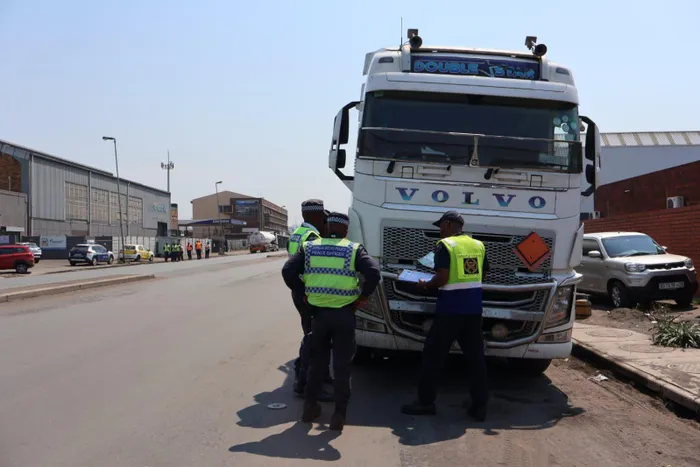eThekwini Metro Police face R80 million overtime crisis amid staffing shortages and unbudgeted duties

The Durban Metro Police is spending close to R20 million each month on overtime pay.
Image: EThekwini Municipality
Staff shortages, long hours, and additional duties not budgeted for are wreaking havoc on the eThekwini Metro Police operations, forcing the unit to spend up to R20 million each month on overtime pay.
Since the beginning of the financial year in July, the unit has spent close to R80m, averaging between R19m and R20m each month.
This figure is much higher than the one city councillors were recently briefed on. At a recent meeting, councillors were informed that the unit had spent about R37m on overtime pay, which they had already expressed serious reservations about.
The Head of Metro Police, Sbonelo Mchunu, detailed the challenges faced by the unit. He stated that staff shortages, additional mandates, and the unpredictable nature of policing work are contributing to the spiralling cost of overtime.
“The R37 million mentioned by the councillor is too low; for the months of July, August, and September, we have been paying about R19 million to R20 million in overtime. We are still to pay the October account, which will then put the figure at R80 million in total to date,” he said.
“The unit is assigned many duties that contribute to the overtime pay. We are tasked with protecting senior officials and councillors, which is not part of our mandate, and not budgeted for, contributing to the need for overtime.
“The work of police is unpredictable; for instance, if we are doing hawker enforcement, there is a lot of paperwork and processes that lead to working long hours and incurring overtime. If we are conducting enforcement, we incur overtime because the officer cannot abandon their duties while they are in progress as they are trying to avoid incurring overtime.
“There are other issues, including recruitment. Other metros, for instance, recruit annually: the Cape Town Metro recruits a thousand each year, while another in Johannesburg recruits 500, and yet another also in Johannesburg recruits 300. We are way below that,” said Mchunu.
The revelations have stunned opposition party councillors.
The Metro Police have come under fire in previous years over overtime claims. During the period when the country was under the COVID-19 lockdown, the Metro Police were paid millions in overtime, raising questions about how they were able to accumulate such overtime pay when the country had been on lockdown.
The city had committed itself to addressing any abuse of overtime. ActionSA councillor Zwakele Mncwango has expressed deep concern about the continued misuse of municipal resources under the guise of security for councillors.
“To date, the Metro Police’s overtime bill has exceeded R37 million, and much of this is not linked to genuine law enforcement. Instead, Metro Police officers are being used as bodyguards for councillors – driving them around instead of protecting our communities. We cannot accept this misuse of police resources while crime, illegal dumping, and lawlessness continue to grow in eThekwini. We are aware that councillors are receiving VIP bodyguards.”
He said what’s even more shocking is that many of these councillors do not have SAPS threat analysis reports to justify this level of protection.
“This will undoubtedly raise audit queries and reflect poor oversight. We therefore call on the speaker to urgently investigate and address this issue. The millions wasted on VIP protection could be redirected to service delivery, fixing streetlights, patching potholes, and improving safety for ordinary residents,” Mncwango said.
DA councillor Thabani Mthethwa stated that for a few years now, there has been a very concerning disconnect between overtime claimed by the Metro Police compared to the actual crime fighting and bylaw enforcement in the municipality.
“To make matters worse, a sizeable amount of this overtime is claimed by people who are guarding councillors/politicians, not for actual service delivery. It therefore means that a lot of Metro Police resources are used in the interest of politicians and not for service delivery.”
IFP councillor Mdu Nkosi said the solution was the recruitment of more police officers. “I know that they are complaining about the shortage of metro police, that the numbers are too few. What we really need is the recruitment of more police officers so we can finally leave this issue of overtime behind.
“We are hoping that the cluster task with public safety will soon bring a detailed report on how many metro police they still need and that the CFO approves the budget for those appointments.
“That way, the police will know that they are on shift, and they work until a certain time. But it is important for the unit to continue to be visible; it should be visible not just in the city centre but also in the rural areas of the municipality,” Nkosi said.
Patrick Pillay of the Democratic Liberal Congress (DLC) said overtime sometimes is justified, especially when there are special projects.